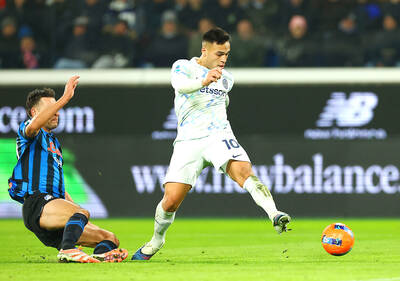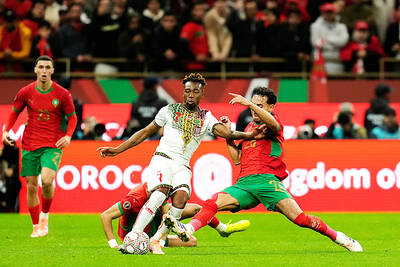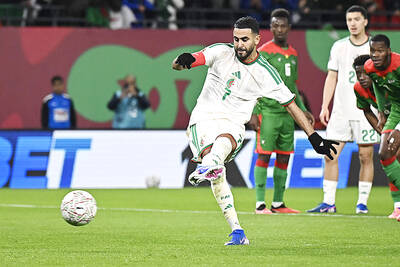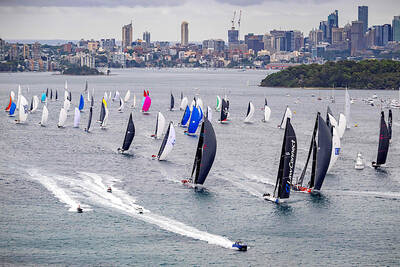Queensland backrower John Roe is the only uncapped player in defending champion Australia's 30-man squad named yesterday for the Rugby World Cup.
Notable absentees from the squad are long-serving loose forward Owen Finegan and props Patricio Noriega and Glenn Panoho.
Finegan, a 55-test veteran, was a key performer in Australia's 1999 triumph but after returning from a shoulder reconstruction failed to convince the selectors he deserved a spot.
Roe he gets his chance in the Oct. 10 to Nov. 22 tournament in Australia after No. 8 Toutai Kefu was ruled out with a shoulder injury earlier in the week.
"While I'm obviously thrilled and very excited to be part of the World Cup my thoughts are really with Toutai and I feel very sorry for him," Roe said.
Roe's fellow Queenslanders David Croft and 1999 World Cup winner Matt Cockbain were also named in the squad after being on the outer during the Wallabies' seven tests this year.
Cockbain's selection comes just 48 hours after his brother Brent was named in the Welsh World Cup squad.
"I've tasted it in 1999 and I can't wait to play in it again," Matt Cockbain said. "The World Cup is every rugby player's dream."
Utility back Elton Flatley and lock David Giffin were named as George Gregan's two deputies in the squad, promoted after the injury to vice-captain Kefu.
For Flatley it marks a major turnabout after he was dumped from the team to play England for disciplinary reasons.
Coach Eddie Jones said Thursday that selecting the squad was the toughest job of his rugby career.
"The most difficult choice was omitting Owen Finegan," said Jones.
"Owen's been a great servant for the Wallabies but we've given him every opportunity to recapture top form since returning from a shoulder injury, unfortunately it wasn't enough."
Former Wallabies captain John Eales said the changes to the squad only five weeks from the World Cup isn't a sign of panic.
"Eddie [Jones] is not the type of guy to panic," Eales said. ``He's a very considered guy, he would have a lot of rhyme and reason behind his selections.''
Eales, who played in both Australia's World Cup wins in 1991 and 1999, said he felt sorry for the players who missed out.

STILL IN THE HUNT: Rasmus Hojlund took his goal tally for SSC Napoli to nine as the champions cruised to a win at US Cremonese and stayed two points behind the leaders Inter on Sunday stayed at the Serie A summit after beating Atalanta BC 1-0 to maintain their slender lead over local rivals AC Milan. Lautaro Martinez netted the only goal of the game in Bergamo for Inter, who lead Milan, 3-0 winners against Hellas Verona thanks to Christoper Nkunku’s first Serie A goals, by a single point at the top of the division. The Argentina striker has scored in four consecutive league matches to end what has been a tricky year in positive style. “I ended last season in a lot of pain... I kept going during the Club World Cup and international

Hosts Morocco on Friday were held to a 1-1 draw by Mali at the Africa Cup of Nations, ending their world record run of wins and leaving them still to make sure of progress to the next stage. Midfielder Brahim Diaz tucked away a penalty in stoppage-time at the end of the first half, but Mali equalized from the spot midway through the second half through Lassine Sinayoko. Both penalties were awarded after video reviews in a tempestuous clash at the end of a busy day of action at the tournament. Morocco were atop the Group A standings with four points, while Zambia,

Algeria on Sunday became the third country after Egypt and Nigeria to qualify for the knockout stage of the Africa Cup of Nations by edging Burkina Faso 1-0 in Rabat through a Riyad Mahrez penalty. Defending champions Ivory Coast failed to join the trio after drawing 1-1 with Cameroon in a lively showdown in Marrakesh. Elsewhere, Mozambique ended a 39-match wait for a first victory by beating Gabon 3-2, while Sudan got back into contention for a last-16 slot by beating Equatorial Guinea 1-0 in Casablanca. Captain Mahrez converted from the penalty spot midway through the first half and Algeria then held on

Supermaxis Master Lock Comanche and defending champions LawConnect yesterday continued their close duel on the second day of the 80th running of the Sydney to Hobart yacht race. Just over 27 hours into the race that began on Friday in Sydney Harbour and is to end on the island state of Tasmania, Comanche had a 4 nautical mile (7.4km) lead over LawConnect. LawConnect was forced to contend with a broken mainsheet and halyard overnight, but fixed both issues and remained in pursuit of Comanche, which is skippered by Matt Allen and James Mayo. “We had a few things slow us down and Comanche’s